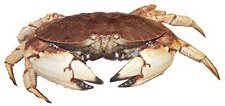
DEBRA WOOD, PHD
Assistant Professor of Biology
Research Interests
Persisting environmental changes such as those associated with global climate change place chronic stress on animals. This is occurring for marine species where eutrophication and increased carbon emissions have led deoxygenation of the oceans. In these low oxygen environments, critical behavior patterns for aquatic animals, such as feeding and reproduction, are altered by the stress of chronic hypoxia. Our lab is investigating influences of hypoxia in the control of feeding in marine crabs. We are investigating hypoxia-induced cellular and neuroendocrine adaptations in a part of the crab CNS, the stomatogastric nervous system which is involved in feeding related behaviors. We are using electrophysiology, biochemistry, and molecular biology to study how hypoxic conditions can alter response of individual neurons and the feeding motor patterns of the stomatogastric network. The well-described stomatogastric nervous system contains relatively few neurons provides an opportunity to ask questions at a mechanistic level not often amenable in  larger nervous systems. Hypoxic stress is known to change the availability and actions of neurotransmitters and hormones in many species from humans to worms. We are currently investigating the impact of changing dopamine levels on regulation of chewing motor patterns and how early cellular responses initiated by stress proteins, such as heat shock proteins, can alter feeding motor patterns. larger nervous systems. Hypoxic stress is known to change the availability and actions of neurotransmitters and hormones in many species from humans to worms. We are currently investigating the impact of changing dopamine levels on regulation of chewing motor patterns and how early cellular responses initiated by stress proteins, such as heat shock proteins, can alter feeding motor patterns.
|

